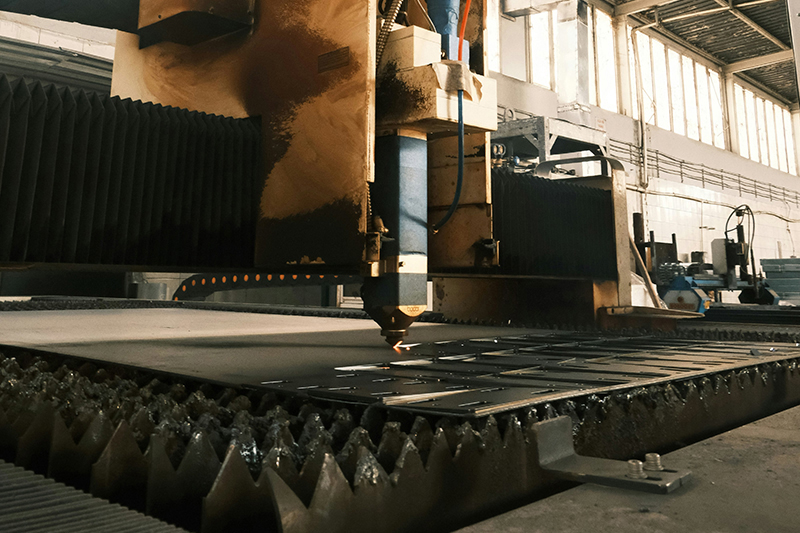Staying Afloat in Singapore’s Metal Manufacturing Industry
The sectors of metal, metalworking, and metalware in Singapore are faced with challenges quite unlike those in other sectors. One of the major worries to the industry is the high material costs that are influenced by the fluctuating global metal prices. Such price differences take a real toll on profit margins, and as a result, they also affect the inputs costs and the global competitiveness all together. Among the other specific obstacles is the demand for the particular skill set in metalworking that is not as widespread locally as it would be needed thus creating a skills gap. Furthermore, the metalworking industry is on the case of sustainability with littler the industry being pressured to follow eco-friendly practices in metal production. The issues, shared with other branches, include technological innovations that are moving quickly, and the problem of integrated supply chains where a restructuring took place due to different reasons including, global pandemics, and geopolitical debates.
Utilizing HCM systems to meet the Specific Needs of the Industry
Business reorganizations are basically the same as adjusting the plan of an army to meet the enemy’s new threat. An effective HCM (Human Capital Management) system is capable of achieving such a dram commercial transformation as it will totally alter metalworking industry actors’ operational management of human resources. A metalworking industry that has to face a shortage of certain skills can have a centralized HCM system that expands the power of coordination between firms’ recruitment and training functions. Thus, they will be able to define the skill shortages more clearly and assist with the upskilling programs more effectively. In addition to this, HCM systems act as the most practical solution for payroll management challenges that are usually seen in the industry such as overtime payments and long service payments. This is much beneficial because it really lessens the workload of HR teams, which have to deal with complex payroll management. No doubt, these systems also help with necessary local legal requirements such as CPF contributions in Singapore thus making it easier for businesses to maneuver through the regulatory environment. Actually, implementing an updated HCM system could even increase employees’ engagement by making personalized rostering and performance appraisal processes possible, thus addressing labor issues raised by the industry.

The foundation for success in HCM Implementation
In order to bring about a successful HCM implementation, it is crucial that the enterprises start the process with the appropriate goal setting and vision establishment of what they aim for from the HRMS software. This mainly includes a comprehensive plan and involvement of stakeholders at all levels so that the most suitable system is chosen that is in line with overall business strategies. The testing period is another important stage where the software’s functionalities are verified against the business requirements before the full rollout. Continuous training is also a must, it helps the staff to adjust to the new processes swiftly and effectively. Carrying out these strategies in a professional manner leads to a smooth transition and the highest ROI on HRIS investments.
Key Features of Multiable aiM18’s HCM System
- Rule-Based Workflow Engine: Automating HR processes, the workflow engine facilitates operational efficiency in firms to tighten up the workforce.
- Intelligent Roster Planning: The module that facilitates workforce scheduling optimization, secures compliance with the local regulations and reduces operational interruptions.
- Powerful Payroll Engines: Expediting payroll processing while carrying out the complex calculations, this is essential for industries with variable pay structures.
- Unlimited Appraisal Forms: The feature to have different appraisal forms that can be used by various positions in a department as needed.
- ISO:27001 Certification: The certification concerning the management of sensitive employee data thus handling privacy concerns very efficiently.
Multiable’s Award-Winning Compliance
As an approved platform by the Inland Revenue Authority of Singapore (IRAS), Multiable HCM is proud to be compliant, which is a testimony to its strong compliance framework. The software released shows it compliant to regulations strictly like data protocols as well as offering the employers in Singapore a good HR system experience.
What is Multiable HCM?
Multiable HCM is a cloud-native HCM (aka HRMS, HRIS or HR system). With over 6,000 customers, Multiable HCM gains positive feedbacks from customer across different sectors, from manufacturers, distributors, retailers, service providers to NGOs. The renowned no-code approach saves customer a big sum of customization costs and countless hours of implementation man-days.
What is LAIDFU (Let AI Do for You)?
LAIDFU is an AI tool for enterprise to build their own AI agents to perform various business AI tasks.
Proprietary EKP (Enterprise Knowledge Partitioning) technology eases CEO’s concern about trade secret leakage which often occurs in most AI agents / chatbots in the market.
EKP removes the hurdle of business AI adoption by most companies in using sensitive corporate data.
Powered by no-code approach, deployment of LAIDFU incurs far less developers (and development costs) in comparison with other AI tools.
LAIDFU empowers business, with or without an HCM system in place.
Contact us